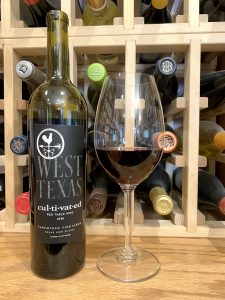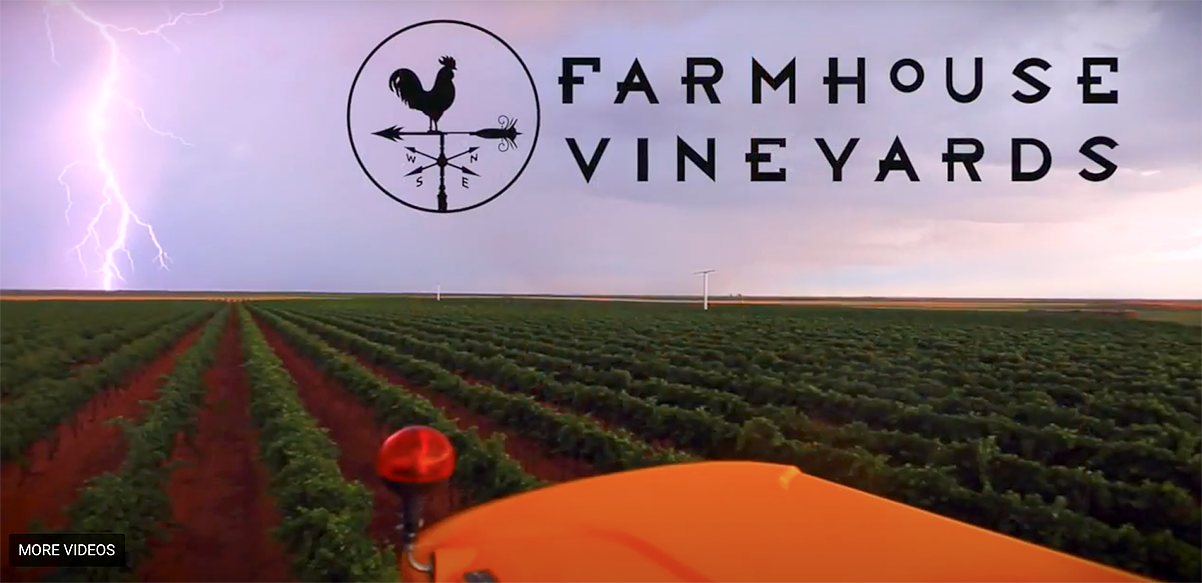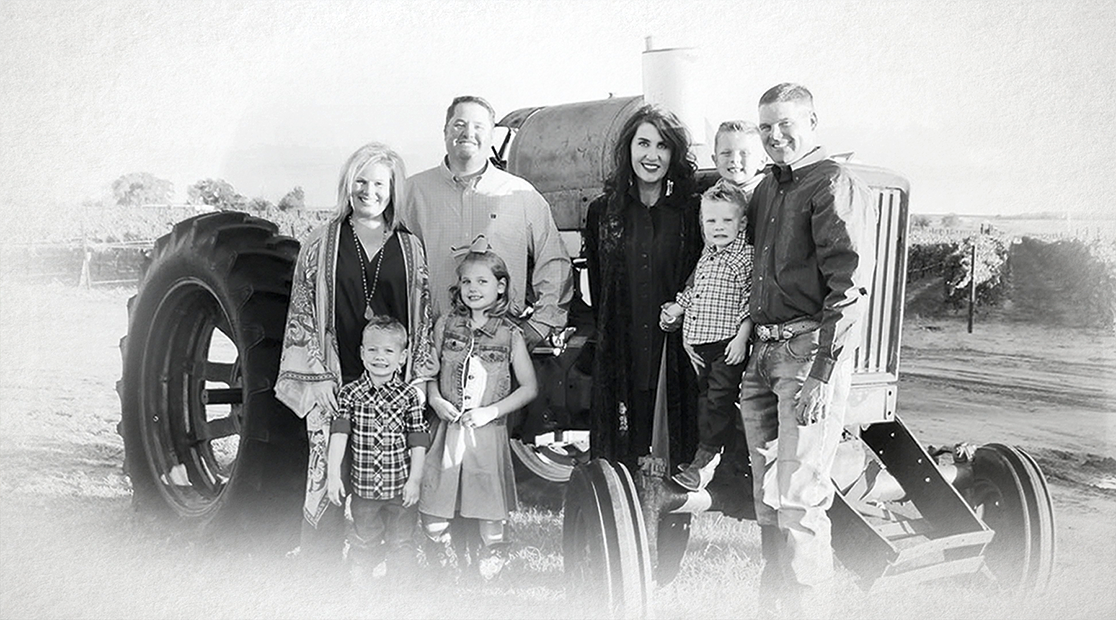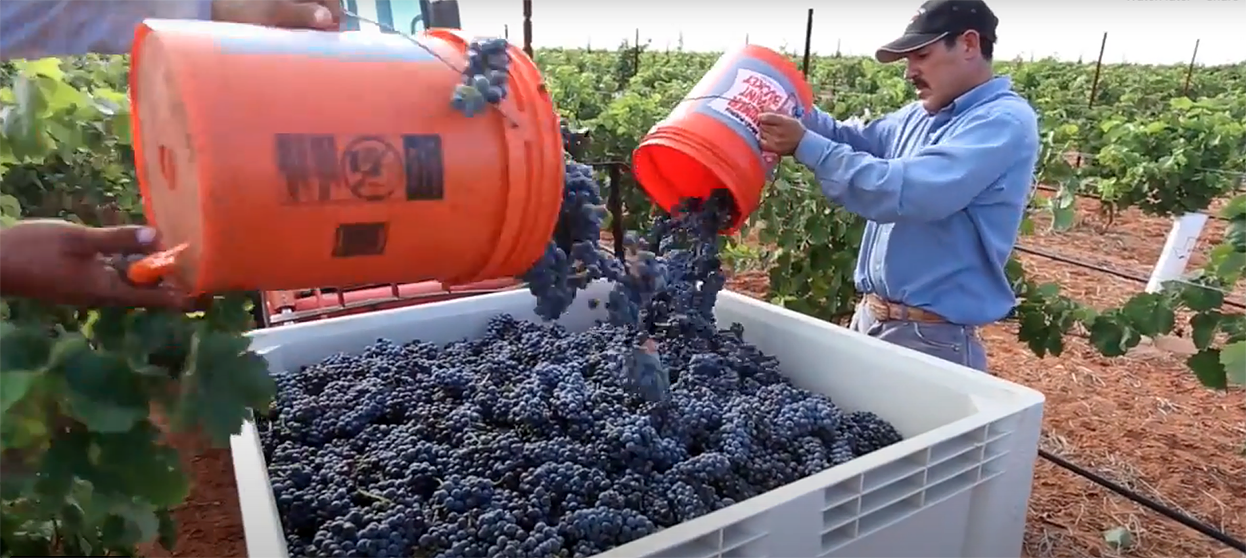Medium ruby color; plum, blackberry, dark fruits, chocolate, black pepper, licorice on the nose and palate.

Dry; discrete tannins and acidity; medium body; very fruit-forward, almost jammy blend of 50% dolcetto, 30% cabernet sauvignon, 10% counoise, 10% cinsault. “Dolcetto” means “little sweet one” in Italian, and the fruitiness of this effort confirms the appropriateness of the name. Minimum oak influence. 14.2% ABV
The grapes are grown on the High Plains—the vast flatlands of northwest Texas, particularly around the cities of Lubbock and Brownfield. The wine is made in Fredericksburg, Texas—the heart of the Texas winery and tasting room area. The Hill Country AVA, located between San Antonio and Austin is the second-most visited AVA in the United States, trailing only Napa Valley. The High Plains–Hill Country pairing is the soul and success of Texas wine. Texas now is the fifth-largest winemaking state, behind California, Washington, New York, and Oregon. And Texas wine is No. 3 in economic impact, just behind New York. Both rankings according to the National Association of American Wineries (WineAmerica).

The Farmhouse website tells their story well: “We are the Seaton’s & Furgeson’s. A brother-sister combo, comprised of 8 generations currently farming 7,000 acres of Cotton, Peanuts, Melons, Various Grains & Vineyards. We have the best damn client list in Texas. Farmhouse Vineyards proudly grows grapes for some of the largest wineries in the state—to the most boutique. We’re incredibly proud of that.
“First and foremost we are growers. For us, the ultimate reward is not producing boutique runs of our own wines, but receiving vineyard designation from our clients. Our tagline isn’t a nice little spin an agency crafted on our behalf. It’s our everyday goal & hopefully our outward expression. Est. in 2010 with our initial vineyard planting.”

The four proprietors include Traci and Anthony Furgeson and Katy Jane and Nicholas Seaton. The website cleverly describes their qualifications and responsibilities. The website also presents their row crops—7,000 acres of cotton, peanuts, black-eyed peas, melons, pumpkins, hemp, and various grains. Their livestock holdings include a herd of Dorper lambs and sheep. Dorpers are known as “meat sheep” because they have hair instead of wool and were bread in South Africa for their superior meat—both taste and quantity. If you do not think you like lamb, Dorper can change your mind. Farmhouse butchers and sells their meat and will be happy to pair it with their wine.
Relatively small production is an issue with Texas wine. Most Texas wine is consumed in Texas even though the state can lay claim to being the fifth-largest wine producing state (behind California, Washington, New York, and Oregon). If this wine is sold out on their website, but they inject a comment that they are making more, so just be patient.

Farmhouse Vineyards Cultivated, Texas High Plains 2019 is smooth, very fruit-forward, decadent dark fruit delight. Farmhouse is an eight-generations deep operation with vinegrowing on the Texas High Plains and a winery in Fredericksburg in the Texas Hill Country AVA. You don’t get more Texas wine than this, and it is a good example of why Texas is asserting itself in the wine world conversation. Who knew, pardner? Sip some of this and find out. Ideal pairing with lamb, particularly Dorper; also with rich cuts of beef; wild game—venison and turkey; pork shoulder and pork sausage; smoked ham; barbecue—both pork, beef, chicken; rabbit; veal; wild game—venison, boar; pizza, pasta, and Italian fare in general. Cheese—smoked cheddar, edam, manchego, aged provolone, parmesan, pecorino, smoked gouda, mozzarella; goat cheeses. $35
